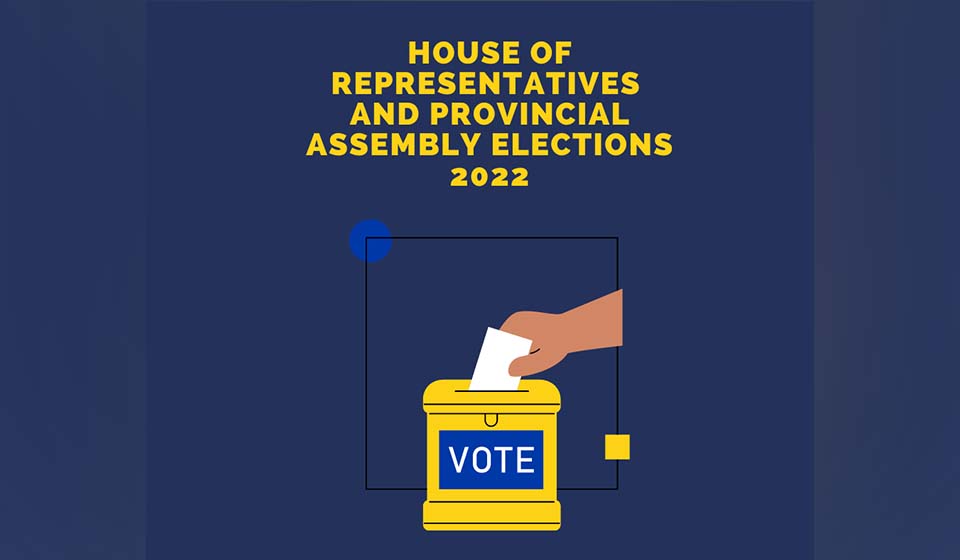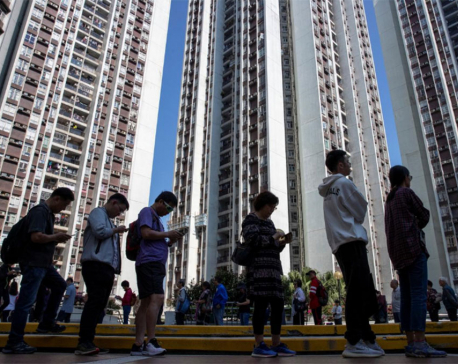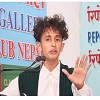
OR
Opinion

More from Author
Thousands of prospective voters were systematically not allowed to vote in the elections to the House of Representatives and provincial assemblies held on November 20.
The much-awaited November 20 elections have been held and the result announcement is in the last stage. The Election Commission (EC) may pat its own back and say the elections were successfully held. However, throughout the whole electoral process, the EC could not stay immune to controversy. In fact, it failed in executing its responsibilities properly and was continuously embroiled in controversies. The EC’s unthoughtful actions and inconsiderate thinking were exposed for everyone to see - whether it be the commissioners’ remarks or measures,, causing an unnecessary fuss. The decision to dismiss a candidate (without following the due process), outrightly challenging freedom of speech (banning the ‘No, Not Again’ campaign), or bombarding the news with heedless threatening comments was not befitting a neutral constitutional body. In an interaction on 'Management of the Election Commission' held in Lalitpur before the elections, former chief election commissioner (CEC) Bhojraj Pokharel called upon the EC “to act with moderation." However, not only did the EC lack moderation, it was also deprived of any activeness and sincerity.
While the commission was busy playing the role of a rabid dog, the election campaign monitoring and election preparation did not go smoothly. Regular court challenges turned down the commission's decisions. And the street consensus was not in favor of the commission, either. The decision to scrap the candidacy of Dr Toshima Karki, a candidate for the House of Representatives (HoR) from Lalitpur-3, caused a tacit interference in the electoral momentum- breaking an equilibrium that the commission ought to have maintained. Dr Karki, who was eventually elected from Lalitpur-3 for the HoR, had thanked the election commission for assisting in her campaign. The unthoughtful action of the commission was an interference in the election - even if the practical implication cannot be ascertained objectively, the symbolic impact was enormous. Besides rampant rants, the election commission defaulted in the primary stage of the election, too. While conducting field visits; in various prospective temporary voting booths, we observed that there were severe lapses in the registration process which resulted in systematic disenfranchisement of individuals - especially in the case of temporary voters.
A precarious state
The Supreme Court (SC) had ordered that government employees, security personnel, old-age-home residents and prisoners, too, be allowed to vote in the HoR and provincial assembly elections. However, even if the court provided the ‘right’, the commission defaulted in providing the 'access.' The situation was dire: among the tentative 26,000 prisoners across the country, because of the commission's policy, only some two percent could practice their voting right. The rigid registration policy disenfranchised a substantial number of voters.
In the registration phase, thousands of individuals got stripped of their rights. For example, In Charkhal Prison, there were almost 700 prospective voters (we were told this by the information officer while visiting the jail). However, because of the eligibility criteria set by the commission, only 161 of these prisoners could be registered. The commission later slashed the number to 123 individuals. Only 17 percent of the total prospective voters were enfranchised. While the number is meager, it is one of the highest in comparison to other places. Because of the proactiveness of the staff, the numbers were substantially better. In contrast, the biggest jail in our country, the Central Jail, had only 20 of the 3,385 individuals registered! That's only 0.59% of total prospective voters. In Nakkhu Jail, out of 1.414 prospective voters, only 50 were included in the voting list. A similar situation existed in old-age homes. While visiting Pasupati's old-age home, we were stunned to find that among the 94 individuals there, only two are temporary voters. This pattern exists all over the country. The criteria for registrations established by the commission has substantially limited the number of voters. And the court order and election are reduced to a simple ritual. The EC did not just fail, it failed miserably.
The commission decided to establish temporary polling booths inside the prisons; however, the logistical arrangement was sure to be challenging. The home ministry had slashed 90 percent of the stationed security personnel in prisons, which caused a severe strain on security inside prisons. The Prison Management Committee had told us that the Nepali Army would provide guards inside prisons. However, in case of disputes and riots inside prisons: how would the army control the prisoners? Though there were substantial logistical challenges, the primary concern was/is the low registration numbers for temporary voters, questioning the inclusivity of the elections.
The problem with the criteria
The problem with the criteria set by the EC is the poll body applies the same set of criteria to all kinds of voters. Voter ID Card Number and address were made mandatory. Such requirements are okay for normal situations and normal voters. However, treating voters inside prisons and old-age homes as normal voters is not understanding their situation. Temporary voters, such as them, have severe mobility restrictions and limitations that posit the problem of proper documentation. So applying the same criterion to them was ignoring their situational variation and was also highly insensitive. While visiting these would-be booths, we found how dissatisfied individuals were with the commission’s decision.
In prisons, individuals have mostly no idea where their documents are. While some had requested their family members to get them, getting them was not proven to be easy. Similarly, many individuals have stayed for a long time in these closed environments and have not even made the documents. Those who had made the Voter ID before the prevalence of modern IDs are also not eligible for voting. Individuals shared the same qualm: we are shut-ins; what can we do? Similarly, individuals staying long in jails don't know their new address created after federalism. Most knew their small villages- and not their rural municipality or municipality, let alone their ward-number. In the old-age homes, an old lady showed us her white voter ID card she had carefully stored, which- however- would not get her the eligibility for voting because of the criterion established by the commission.
Rather than showing such rigidity, the commission should have shown some more leniency. Finding their identity is not all that hard: a simple document revealing their identity should have sufficed, or the commission should have displayed some more proactiveness. The criteria of having a voter ID card number and full address are simply unfeasible for most staying in closed environments. These additional requirements systematically disenfranchised a portion of the electorate. While we expected robustness, progressiveness, and dynamism by the commission, it betrayed ours as well as the whole country’s expectation. However, this should be taken as a lesson for the future elections. The commission should rectify the voter list to ensure inclusivity for all future elections. Otherwise, elections will be reduced to the completion of a ceremonial ritual, mere symbolic tokenism.
You May Like This

Stakeholders call for ensuring voting rights to PWDs
POKHARA, Nov 12: A memorandum drawing the attention of the Election Commission was submitted calling for ensuring that people with... Read More...

EC doing its bit to make voters well-informed
KATHMANDU, Oct 4: The Election Commission (EC) has published the details of all voters — their serial number, voter number,... Read More...

More than a million turn out in Hong Kong test of support for China-backed leader
HONG KONG, Nov 24: More than a million voters thronged polling stations across Hong Kong on Sunday in district elections... Read More...







Just In
- NRB to provide collateral-free loans to foreign employment seekers
- NEB to publish Grade 12 results next week
- Body handover begins; Relatives remain dissatisfied with insurance, compensation amount
- NC defers its plan to join Koshi govt
- NRB to review microfinance loan interest rate
- 134 dead in floods and landslides since onset of monsoon this year
- Mahakali Irrigation Project sees only 22 percent physical progress in 18 years
- Singapore now holds world's most powerful passport; Nepal stays at 98th












Leave A Comment